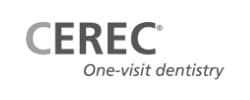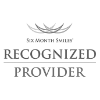Your smile has unique needs throughout various stage of your life. As an aging adult, there are specific health risks that affect the heart and bones as well as the mouth. Educating yourself on the conditions associated with aging and oral health can help you retain your smile for years to come. After all, your teeth were designed to last a lifetime!
There are both environmental factors and biological factors that put us at higher risk for dental problems over time. As we grow older, the nerves in our teeth can become smaller, which can make issues like tooth decay less noticeable. If dental problems are diagnosed late, they are often less treatable. In addition, the gums shrink as we age, which leaves the teeth especially vulnerable to infection and decay.
Another very common condition in senior adults is dry mouth. While dry mouth is not a normal part of aging, it is a side effect for more than 500 medications, including many that are often taken later in life. Why is a dry mouth such a concern? Your mouth needs spit in order to neutralize harmful acids on your teeth as well as rinse away food particles and bacteria. Without adequate amounts of saliva, you are at a greater risk for cavities and gum disease. Therefore, it is extremely important that you inform your dentist of any medications you are taking. While you may not be able to stop taking your prescription, your dentist can give you some recommendations to relieve your dry mouth symptoms and protect your oral health.
Oral cancer is also especially prevalent among older adults, with the average age of diagnosis at 62 years old. Oral cancer includes cancers of the mouth, throat, tongue, and lips. If you notice red or white spots, sores in the mouth or bleeding which does not disappear within two weeks, schedule an appointment with your dentist as soon as possible.
Just because oral health problems are common in the geriatric population does not mean they are inevitable. Taking steps to prevent tooth decay, dry mouth and gum disease can protect your smile through the years. It is important to limit sugar intake, avoid smoking, keep your dental exams and practice good brushing and flossing habits. For many senior adults, this means using an electronic toothbrush or water-flossing tool that requires less dexterity and coordination than traditional methods. At Grateful Dental, we are committed to treating all aspects of your smile, through all stages of life. We educate aging adults on the best ways to improve their oral health and overall health.














